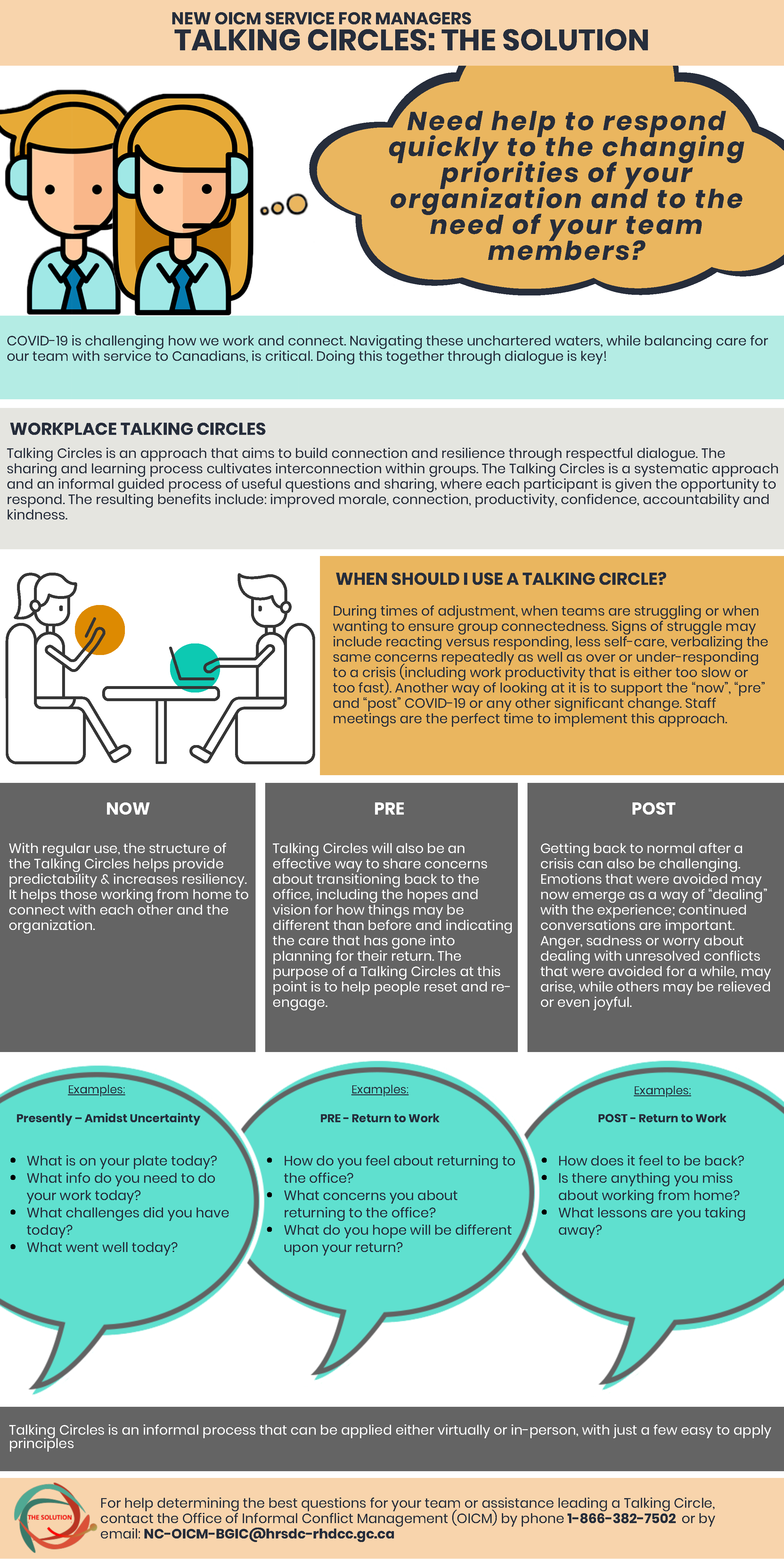Talking Circles: The Solution for Managers
Long Description
Need help to respond quickly to the changing priorities of your organization and to the needs of your team members?
COVID-19 is challenging how we work and connect. Navigating these unchartered waters, while balancing care for our team with service to Canadians, is critical. Doing this together through dialogue is key!
Workplace Talking Circles
Talking Circles is an approach that aims to build connection and resilience through respectful dialogue. The sharing and learning process cultivate interconnection within groups. The Talking Circles is a systematic approach and an informal guided process of useful questions and sharing, where each participant is given the opportunity to respond. The resulting benefits include improved morale, connection, productivity, confidence, accountability and kindness.
When should I use Talking Circles
During times of adjustment, when teams are struggling or when wanting to ensure group connectedness. Signs of struggle may include reacting versus responding, less self-care, verbalizing the same concerns repeatedly as well as over or under-responding to a crisis (including work productivity that is either too slow or too fast). Another way of looking at it is to support the “now”, “pre” and “post” COVID-19 or any other significant change. Staff meetings are the perfect time to implement this approach.
1. Now
With regular use, the structure of the Talking Circles helps provide predictability & increases resiliency. It helps those working from home to connect with each other and the organization.
Examples: Presently-Amidst Uncertainty
- What is on your plate today?
- What info do you need to do your work today?
- What challenges did you have today?
- What went well today?
2. Pre
Talking Circles will also be an effective way to share concerns about transitioning back to the office, including the hopes and vision for how things may be different than before and indicating the care that has gone into planning for their return. The purpose of a Talking Circles at this point is to help people reset and re-engage.
Examples: Pre-Return to Work
- How do you feel about returning to the office?
- What concerns you about returning to the office?
- What do you hope will be different upon your return?
3. Post
Getting back to normal after a crisis can also be challenging. Emotions that were avoided may now emerge as a way of “dealing” with the experience; continued conversations are important. Anger, sadness or worry about dealing with unresolved conflicts that were avoided for a while, may arise, while others may be relieved or even joyful.
Examples: Post-Return to Work
- How does it feel to be back?
- Is there anything you miss about working from home?
- What lessons are you taking away?
Talking Circles is an informal process that can be applied either virtually or in-person, with just a few easy to apply principles.
For help determining the best questions for your team or assistance leading a Talking Circle, contact the Office of Informal Conflict Management (OICM) by phone 1-866-382-7502 or by email: nc-oicm-bgic-gd@hrsdc-rhdcc.gc.ca
